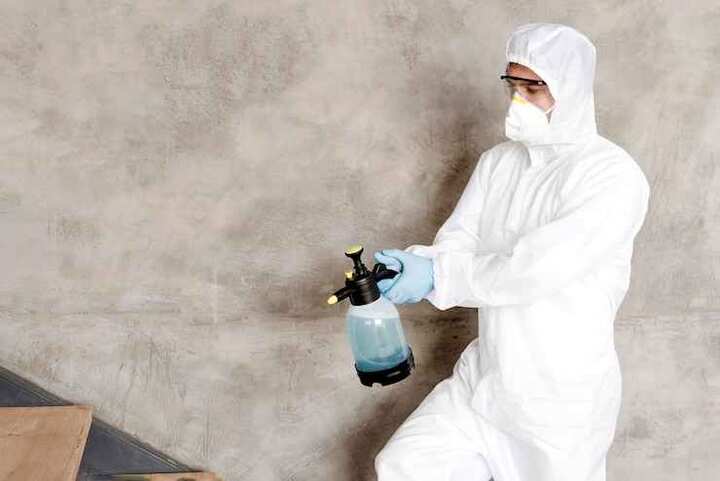
Comprehensive Indoor Air Quality Testing for a Healthier Environment in Vero Beach
In the thriving environment of Vero Beach, Florida, a city renowned for its beautiful beaches and thriving community, indoor air quality (IAQ) plays a crucial role in ensuring the health and well-being of its residents. As urban development surges and environmental conditions change, addressing indoor air quality becomes increasingly important. This article offers a comprehensive look into indoor air quality testing in Vero Beach, presenting data-driven insights and expert analysis.
The Importance of Indoor Air Quality
Indoor air quality significantly impacts the health, comfort, and productivity of residents and workers. According to the Environmental Protection Agency (EPA), indoor air can be two to five times more polluted than outdoor air, leading to health problems such as allergies, asthma, and respiratory issues.
Mold as a Major Indoor Air Pollutant
Mold is a prevailing issue in Vero Beach due to its humid climate, making mold assessment and remediation crucial. Symptoms of mold exposure can range from nasal stuffiness to more serious health concerns.
Regular testing for mold and implementing effective remediation strategies are essential for maintaining healthy indoor environments. For expert mold inspection and remediation, visit Mold Inspection Vero Beach.
Comprehensive Testing Approaches
Comprehensive indoor air quality testing encompasses various techniques to evaluate air quality, including:
Testing Method
Pollutants Detected
Air Sampling
Mold, bacteria, VOCs
Surface Sampling
Dust, biological contaminants
Gas Detection
Carbon monoxide, radon
Benefits of Regular Indoor Air Quality Testing
Regular IAQ testing provides numerous benefits beyond health improvements, including increased productivity and reduced healthcare costs. A World Health Organization report suggests poor air quality is linked to cognitive decline and general productivity losses, estimated to cost global economies billions annually.
Challenges in Maintaining Quality Air
The subtropical climate of Vero Beach presents specific challenges for maintaining good indoor air quality, such as constant humidity and a heightened risk of mold growth.
Solutions and Professional Partnerships
Partnering with reputable IAQ testing and remediation experts can effectively address and prevent air quality issues. Professionals are equipped with the technology and experience to identify pollutants and recommend tailored solutions.
Future Trends in IAQ Enhancement
Advancements such as smart air purifiers and integrated HVAC systems are expected to transform IAQ management. These technologies, combined with AI-driven diagnostics, can offer real-time monitoring and adjustments.
Local Initiatives and Community Involvement
Community programs in Vero Beach aim to educate the public about IAQ and offer resources for testing and improvement. These initiatives encourage sustainable practices and proactive health management.
Investing in Healthier Living Spaces
Homeowners and business owners investing in IAQ improvements find significant returns regarding health and property values. Indoor air quality testing is a proactive approach to health prevention, offering peace of mind and improved living conditions.
For detailed IAQ solutions and expert guidance, visit Indoor Air Quality Testing Vero Beach.
Assessing Economic Impacts of IAQ
Improving IAQ has economic benefits, potentially reducing healthcare expenses and enhancing workplace productivity. A study by the Harvard Business School highlighted that air quality improvements could lead to a 10-20% performance increase in complex cognitive tasks.
Key Takeaways
Indoor air quality testing is paramount for ensuring a healthy environment in Vero Beach. The challenges presented by the local climate require proactive measures and partnerships with professionals for optimal results.
Regular IAQ assessments can prevent health issues and contribute to overall economic and community well-being, heralding a healthier and more sustainable future for Vero Beach.
FAQs about Indoor Air Quality Testing
What is indoor air quality testing and why is it important?
Indoor air quality testing involves assessing the air quality within a building to identify pollutants affecting health and comfort. It’s important because poor indoor air can lead to health issues like allergies, respiratory problems, and fatigue. Given that people spend about 90% of their time indoors, maintaining healthy air quality is crucial for overall well-being and productivity.
How often should indoor air quality tests be conducted?
The frequency of IAQ testing depends on several factors, including the building's age, location, and history of air quality issues. For most environments, annual testing is recommended. However, in places like Vero Beach with high humidity and potential for mold growth, more frequent testing, such as bi-annually, may be advised. Continuous monitoring can help identify fluctuations and prevent potential health risks.
What are the common pollutants tested in indoor air quality assessments?
Common pollutants include particulate matter, volatile organic compounds (VOCs), mold spores, carbon monoxide, and radon. These can originate from various sources, such as building materials, cleaning agents, and outdoor air infiltration. IAQ testing helps in identifying these contaminants so that appropriate remediation measures can be taken to improve health and prevent buildup.
What should I do if a test reveals poor indoor air quality?
If a test reveals poor IAQ, it’s important to consult with experts who can provide solutions tailored to the identified issues. This may involve improving ventilation, installing air purifiers, or addressing specific sources of pollution like mold remediation. Taking prompt action can mitigate health risks and improve air quality significantly.
Can indoor air quality affect property value?
Yes, indoor air quality can significantly impact property values. Homes and commercial properties with poor IAQ issues, such as mold infestations, can see reduced valuations due to the health risks they pose. Conversely, buildings with documented good IAQ, featuring systems and practices for maintaining this quality, are often seen as more desirable and can fetch higher market values, reflecting increased buyer and occupant trust.